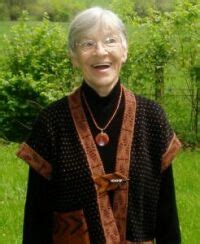A Quote by Confucius
Can there be a love which does not make demands on its object?
Related Quotes
People who are having a love-sex relationship are continuously lying to each other because the very nature of the relationship demands that they do, because you have to make a love object of this person, which means that you editorialize about them. You cut out what you don't want to see, you add this if it isn't there. And so therefore you're building a lie.
It is one step, and a giant one, to see clearly and participate in the love that flows between the persons of the Trinity, but even here, God is seen as the object of his own love. It is yet another step to realize that God is beyond all subject and object and is Himself love without subject or object. This is the step beyond our highest experiences of love and union, a step in which self is not around to divide, separate, objectify or claim anything for itself. Self does not know God; it cannot love him, and from the beginning has never done so.
Being female in this world means having been robbed of the potential for human choice by men who love to hate us. One does does not make choices in freedom. Instead, one conforms in body type and behavior and values to become an object of male sexual desire, which requires an abandonment of a wide-ranging capacity for choice... Men too make choices. When will they choose not to despise us?
The Anti-Vivisector does not deny that physiologists must make experiments and even take chances with new methods. He says that they must not seek knowledge by criminal methods, just as they must not make money by criminal methods. He does not object to Galileo dropping cannon balls from the top of the leaning tower of Pisa; but he would object to shoving off two dogs or American tourists.
Men are anxious to improve their circumstances, but are unwilling to improve themselves; they therefore remain bound. The man who does not shrink from self-crucifixion can never fail to accomplish the object upon which his heart is set. This is true of earthly as of heavenly things. Even the man whose object is to acquire wealth must be prepared to make great personal sacrifices before he can accomplish his object; and how much more so he who would realize a strong and well-poised life.
A life is such a strange object, at one moment translucent, at another utterly opaque, an object I make with my own hands, an object imposed on me, an object for which the world provides the raw material and then steals it from me again, pulverized by events, scattered, broken, scored yet retaining its unity; how heavy it is and how inconsistent: this contradiction breeds many misunderstandings.
One demands two things of a poem. Firstly, it must be a well-made verbal object that does honor to the language in which it is written. Secondly, it must say something significant about a reality common to us all, but perceived from a unique perspective. What the poet says has never been said before, but, once he has said it, his readers recognize its validity for themselves.









































